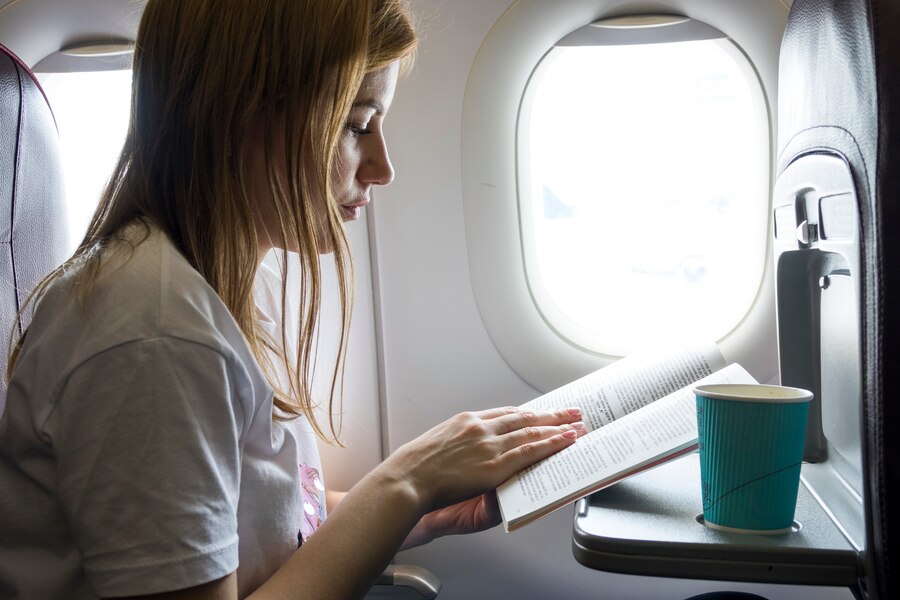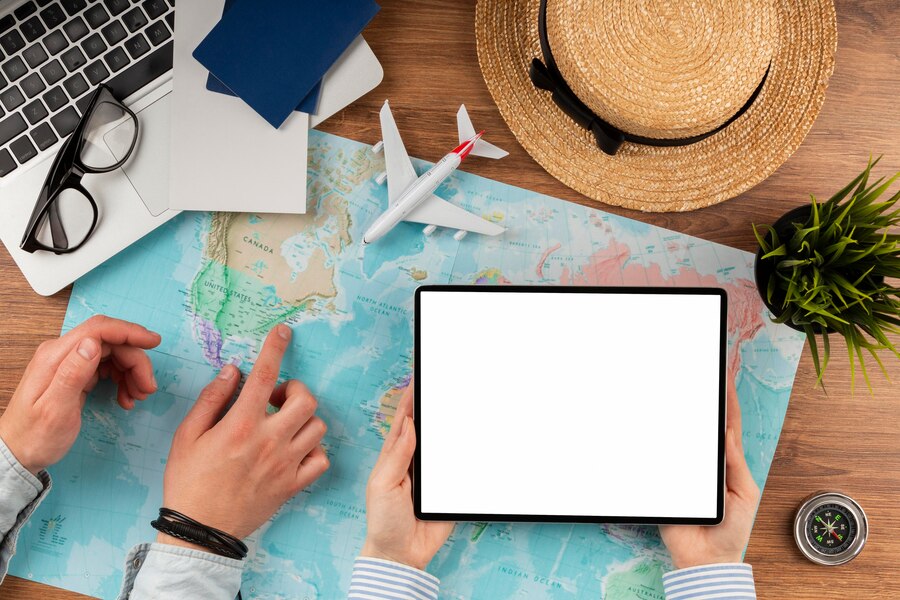Traveling long distances across multiple time zones can be an exhilarating experience, but it often comes with the downside of jet lag. The disruption in your body’s internal clock caused by crossing several time zones can leave you feeling fatigued, disoriented, and unable to adjust to the new local time for several days. Fortunately, there are a number of strategies you can employ to alleviate the symptoms of jet lag and recover more quickly from long-haul flights. In this article, we’ll explore various tips for dealing with jet lag after long flights, providing you with valuable insights on how to reset your body’s circadian rhythm and minimize the discomfort that often accompanies this travel phenomenon.
Understanding Jet Lag: The Science Behind It
Jet lag occurs when your body’s internal clock, or circadian rhythm, is out of sync with the local time at your destination. Your circadian rhythm is regulated by factors such as light exposure, sleep-wake cycles, and hormonal release. When you travel across time zones, particularly when flying east to west or west to east, your body has to adjust to the new local time, which can take anywhere from a few hours to several days, depending on the number of time zones you’ve crossed. The symptoms of jet lag typically include fatigue, difficulty concentrating, disrupted sleep, irritability, and stomach issues.
The reason jet lag affects us so profoundly is due to the misalignment between our internal clock and the new local time zone. It’s especially difficult for travelers to adjust when they arrive at their destination and try to stay awake during daylight hours or sleep during nighttime hours. Long flights, particularly those that span multiple time zones, make this process more challenging, leaving travelers exhausted and disoriented for several days after they land.
How Long Does Jet Lag Last?
The duration of jet lag depends on several factors, including the number of time zones crossed, the direction of travel, and how well you follow certain recovery strategies. On average, it can take a day per time zone crossed to fully adjust. So, if you’ve traveled across five time zones, you might need about five days to feel fully adjusted. However, individual responses to jet lag can vary. Some people may adjust quickly, while others may take longer.
Additionally, the direction of travel can affect the severity of jet lag. Flying east (for example, from New York to London) tends to be more challenging than flying west (like from New York to Los Angeles) because flying east requires you to advance your body clock, which is harder for most people than delaying it. Traveling west, on the other hand, involves staying up later, which is generally easier to do than trying to fall asleep earlier.
Tips for Minimizing Jet Lag After Long Flights
There’s no one-size-fits-all approach to overcoming jet lag, but several strategies have been proven to help travelers reduce the discomfort and recover faster. Let’s dive into some of the most effective tips for dealing with jet lag after long flights.
1. Adjust Your Sleep Schedule Before You Leave
One of the most effective ways to combat jet lag is to start adjusting your sleep schedule a few days before your departure. If you’re traveling east, begin going to bed an hour earlier each night for a few days before your flight. If you’re traveling west, go to bed later to help your body gradually adjust to the new time zone. This gradual shift can help you ease into your new time zone more smoothly, as your body will be more accustomed to the change by the time you arrive.
2. Stay Hydrated During Your Flight
Dehydration can exacerbate the symptoms of jet lag, as it contributes to fatigue and irritability. Airplane cabins are typically very dry, which can make dehydration worse. To mitigate this, drink plenty of water throughout the flight. Avoid alcohol and caffeine, as both of these can dehydrate you and interfere with your ability to sleep properly during the flight.
3. Use Light Exposure to Your Advantage
Light plays a crucial role in regulating your circadian rhythm. Upon arriving at your destination, expose yourself to natural light during the day to help your body adapt to the new time zone. Morning light exposure is especially effective if you’re traveling east, as it helps advance your internal clock. If you’re traveling west, try to get sunlight in the late afternoon. Avoid artificial light in the evening, as it can interfere with your ability to fall asleep and disrupt your internal clock.
4. Take Short Naps, But Don’t Overdo It
While it’s important to stay awake during the day to adjust to the new time zone, taking short naps can help you stay alert if you feel too tired. Keep naps to 20-30 minutes, as longer naps can make it harder to sleep at night. If you arrive at your destination during the day and feel exhausted, try to stay awake until evening so you can sleep through the night and avoid disrupting your body’s sleep-wake cycle.
5. Use Melatonin Supplements
Melatonin is a hormone that your body naturally produces to regulate sleep. When traveling across time zones, your melatonin production can be thrown off, which contributes to jet lag. Many travelers find that taking melatonin supplements can help them sleep better and adjust to the new time zone more quickly. It’s best to take melatonin 30-60 minutes before bedtime at your destination, particularly if you’re traveling east. However, it’s important to consult a healthcare professional before taking melatonin, especially if you have any pre-existing conditions.
6. Gradually Adjust Your Meal Times
Your body’s internal clock is also influenced by the timing of your meals. To help your body adjust more quickly, try to eat meals at the appropriate local times once you arrive. If you’re traveling east, try to have a light meal a few hours before bedtime, and avoid heavy meals right before you try to sleep. This helps signal to your body that it’s time to rest. Similarly, if you’re traveling west, eating at normal meal times will help you adjust your circadian rhythm to the new time zone.
7. Stay Active After You Arrive
Physical activity can help combat fatigue and improve your ability to adjust to a new time zone. Try to get some light exercise after you arrive at your destination. This could be as simple as going for a walk or doing some stretches. Exercise boosts your energy levels and helps regulate your sleep-wake cycle, making it easier for you to adjust.
8. Avoid Caffeine and Alcohol Before Bed
While caffeine and alcohol are common travel companions for many people, both can significantly interfere with sleep quality, making it harder for you to adjust to your new time zone. Avoid consuming these beverages at least 4-6 hours before you plan to sleep. Caffeine can keep you awake and disrupt your ability to fall asleep, while alcohol may make you feel drowsy but prevent you from entering the deeper stages of sleep, leaving you feeling groggy when you wake up.
Comparison of Jet Lag Recovery Strategies
Here’s a quick comparison of some of the most common strategies to help you recover from jet lag. Each one has its pros and cons, and combining a few methods is often the best approach.
| Strategy | Effectiveness | Ease of Implementation | Possible Side Effects |
|---|---|---|---|
| Adjust Sleep Schedule Early | High | Moderate | Requires discipline, may disrupt current routine |
| Hydration During Flight | Moderate | Easy | None |
| Light Exposure | Very High | Moderate | Can be difficult to manage while traveling |
| Short Naps | Moderate | Easy | Can disrupt sleep if overdone |
| Melatonin Supplements | High | Easy | Drowsiness, headache, consult a doctor |
| Gradual Meal Adjustment | Moderate | Easy | None |
| Physical Activity | Moderate | Easy | None |
| Avoiding Caffeine/Alcohol | High | Easy | None |
Frequently Asked Questions
1. How long does it take for jet lag to go away?
The duration of jet lag varies from person to person and depends on factors like the number of time zones crossed and the direction of travel. On average, it takes about one day per time zone crossed to fully recover, but some people may adjust more quickly.
2. Does taking melatonin help with jet lag?
Yes, many people find melatonin supplements help them adjust to new time zones by promoting better sleep. It’s most effective when traveling east. However, it’s always best to consult with a healthcare provider before using melatonin, especially if you’re taking other medications or have underlying health issues.
3. Can I prevent jet lag altogether?
While it’s difficult to completely prevent jet lag, there are several steps you can take to minimize its effects. Adjusting your sleep schedule before you travel, staying hydrated, and using light exposure strategically can all help reduce the severity of jet lag.
4. Is it better to sleep on the plane or stay awake?
It depends on the timing of your flight and your destination. If you’re traveling east, try to sleep during the flight to align with your destination’s nighttime. If you’re traveling west, staying awake during the flight can help you adjust to the new time zone when you arrive.
5. Can exercise help with jet lag?
Yes, light physical activity after you arrive at your destination can help boost energy levels, reduce fatigue, and improve your ability to adjust to the new time zone.



